Campus News
This is UC Santa Cruz
A roundup of top news stories from UC Santa Cruz.
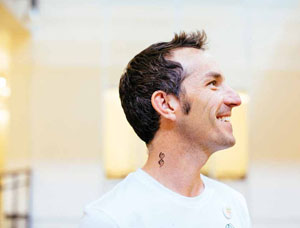
Big money for big data
The National Institutes of Health awarded $11 million to UC Santa Cruz to create the technical infrastructure needed for the broad application of genomics in medicine and biomedical research.
This grant from the National Human Genome Research Institute funds the Center for Big Data in Translational Genomics. The center is a multi-institutional partnership based at UC Santa Cruz and led by David Haussler, professor of biomolecular engineering and director of the UC Santa Cruz Genomics Institute.
The center’s overarching goal is to help the biomedical community use genomic information to better understand human health and disease. To do this, scientists must be able to share and analyze genomic datasets that are orders of magnitude larger than those that can be handled by the existing infrastructure. Advances in DNA sequencing technology have made it increasingly affordable to sequence a person’s entire genome, but managing genomic and related data from millions of individuals is a daunting challenge.

Power of the pounce
Scientists at UC Santa Cruz, using a new wildlife tracking collar they developed, were able to continuously monitor the movements of mountain lions in the wild and determine how much energy the big cats use to stalk, pounce, and overpower their prey.
The new collar—equipped with GPS, accelerometers, and other high-tech features—tells researchers not just where an animal is but what it is doing and how much its activities “cost” in terms of energy expenditure.
“Understanding the energetics of wild animals moving in complex environments is valuable information for developing better wildlife management plans,” said first author Terrie Williams, professor of ecology and evolutionary biology.
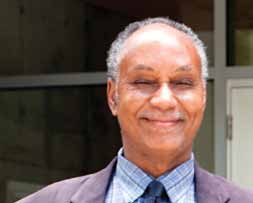
New dean of Humanities
UC Santa Cruz has appointed Tyler Stovall to serve as dean of the Humanities Division, effective spring quarter.
Stovall comes to the campus from UC Berkeley, where he was a professor of French history and dean of the Undergraduate Division of the College of Letters and Science.
Prior to that, Stovall spent 13 years as a faculty member in the UC Santa Cruz Humanities Division. During his last three years at Santa Cruz, he also served as chair of the History Department and provost of Stevenson College.
“The humanities are central to intellectual life in the 21st century,” said Stovall. “I am thrilled to come to UC Santa Cruz, a university known locally and globally for its pioneering contributions to humanistic education and research.”
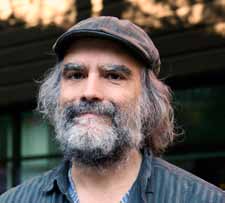
Genomics Institute releases Ebola genome browser
The UC Santa Cruz Genomics Institute released a new Ebola genome browser in September to assist global efforts to develop a vaccine and antiserum to help stop the spread of the Ebola virus.
The team led by UC Santa Cruz researcher Jim Kent worked around the clock for a week, communicating with international partners to gather and present the most current data.
UC Santa Cruz established the UCSC Ebola Genome Portal, with links to the new Ebola genome browser as well as links to all the relevant scientific literature on the virus.
“We need a heroic worldwide effort to contain Ebola,” said Kent, who 15 years ago created the first working draft of the human genome. “Making an informatics resource like the genome browser for Ebola researchers is the least we could do.”
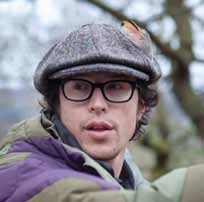
Alum scores Emmy for True Detective
UC Santa Cruz alumnus Cary Joji Fukunaga (College Eight ’99, history) picked up an Emmy Award in the category of “Outstanding Director for a Drama Series” for the HBO series True Detective.
The up-and-coming 37-year-old director, writer, producer, and cinematographer triumphed over a highly competitive field of colleagues, including the directors of Breaking Bad, Downton Abbey, Game of Thrones, House of Cards, and Boardwalk Empire.

Game designer joins art faculty
Award-winning game designer and producer Robin Hunicke joined the UC Santa Cruz faculty in January as associate professor of art and game design.
A well-known figure in the games industry, Hunicke will help lead the new interdisciplinary undergraduate program in Games and Playable Media with arts and engineering at UC Santa Cruz.
Hunicke is the co-founder and CEO of San Francisco’s independent game studio, Funomena, and has a background in fine art, computer science, and applied game studies. She was named one of Forbes’s “Top 12 Women in Gaming to Watch” in 2013.
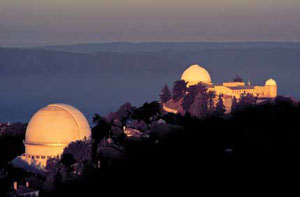
Lick funding to continue
The University of California Office of the President reversed a previous decision to pull funding from Lick Observatory by 2018.
Lick Observatory operations will continue under the management of UC Observatories (UCO), the multicampus astronomical research unit headquartered at UC Santa Cruz. “We are thrilled to hear this news,” said UCO Interim Director Claire Max, adding that there are enough funds in the projected budgets of UCO to run Lick Observatory for the next five years, albeit at a frugal level. Lick has an annual operating budget of approximately $1.5 million. Ongoing fundraising efforts and potential partnerships currently being explored may provide additional funding for Lick.
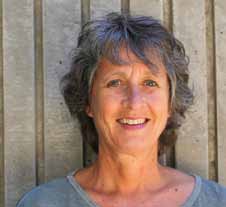
A decade later: organic food
Ten years ago, UC Santa Cruz professor Julie Guthman’s book Agrarian Dreams: The Paradox of Organic Farming in California, was hailed as precedent setting, the first social science study of organic foods in the United States.
A lot has happened in a decade. Sixty percent of consumers now say they buy organics at least occasionally. Most supermarkets feature an organics section or private label for organics. For a while, organic sales grew at a 20-percent-ayear clip.
In a new second edition just published (University of California Press), Guthman, a professor of social sciences and UC Santa Cruz alumna (Kresge ’79, sociology), takes a new look at the state of the organic food movement and some of the strange puzzles that afflict it.
Action! Best college for film majors
UC Santa Cruz was recently ranked No. 7 in the country by College Factual for Best Bachelors Program for Film, Video, and Photographic Arts.
The campus was featured in a Top 10 list along with such institutions as USC, NYU, UC Berkeley, and UCLA.
The data used by College Factual for the rankings includes outcomes such as graduation rates and average starting salary.
UC Santa Cruz in top five for NIH funding
UC Santa Cruz is in the top five of institutions that have seen significant increases in funding from the National Institutes of Health over the past decade.
At the same time a number of other institutions have suffered sizeable drops.
According to “Science Squeezed,” a series of reports on biomedical funding by NPR, NIH funding soared between 1998 and 2003, which created a gold-rush mentality in biomedicine. But since 2004, the NIH budget has dropped by more than 20 percent (not including federal stimulus money during 2009 and 2010).
According to the report, UC Santa Cruz has seen NIH funding increase from about $14 million in 2000 to almost $30 million in 2013. The campus is one of 10 universities that have enjoyed increased funding. In contrast, another group of universities, many with previous funding totals in the hundreds of millions of dollars annually, have seen sizeable drops.
Moving up in world rankings
UC Santa Cruz is ranked 93 among the world’s best universities and in the top 50 in the U.S., according to the Academic Ranking of World Universities (ARWU) published by a Shanghai education-consulting firm.
It’s a move up at least eight places for the campus, which last year was listed in the 101-150 category. The annual study by the Shanghai Ranking Consultancy, a firm spun off five years ago from Shanghai Jiao Tong University, looks at more that 1,200 universities in the world and publishes data on what it deems are the top 500.

Student support gives major boost to Quarry reopening
Efforts to restore and reopen the landmark Quarry Amphitheater received a major boost with the endorsement of using up to $6.38 million in existing student fee reserves toward the project.
The Quarry, which has been closed to events since 2006, had served as a center of campus life since UC Santa Cruz was founded 50 years ago.
The Student Fee Advisory Committee, which endorsed use of fees toward the project, is the primary avenue for advising the chancellor and executive vice chancellor on allocation of fees. The committee is composed of students and other campus representatives.
“This is an exciting advancement of this project,” said Alison Galloway, executive vice chancellor and provost. “We are grateful for this powerful endorsement by students. We hope it inspires our alumni and others to join in bringing back this quintessential gathering space in the heart of campus.”
During Alumni Weekend, April 23-26, tours of the Quarry will be offered, and visitors will have the opportunity to share their Quarry stories.
An estimated $1.2 million in additional funding is needed to move forward with the initial phase of the project, which will reopen the Quarry. If fundraising is successful, work is projected to begin in 2016.
Reopening the Quarry Amphitheater is a priority of The Campaign for UC Santa Cruz.